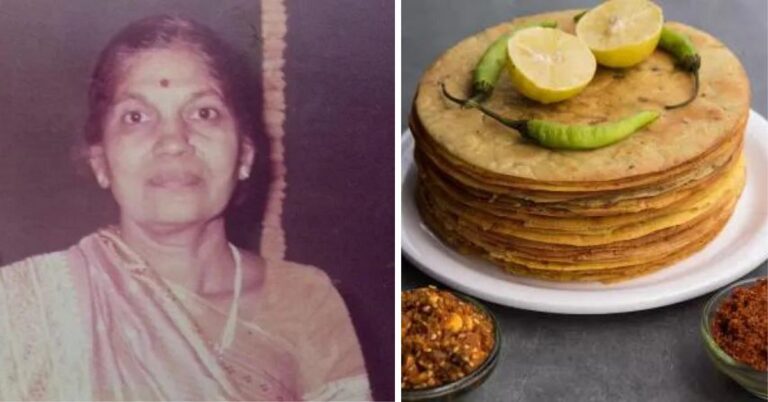
Induben Sumanlal Jhaveri’s motto was very clear when she started her khakhra business in 1965 – “sell only what you would gladly feed your children”.
For over five decades now, her company has operated on this very principle.
“It all began from a small room in her home in Ahmedabad, where she would single-handedly make up to 5 kg of khakhra a day,” says Ankit Jhaveri, the third-generation owner of the business and Induben’s grandson, in conversation with The Better India.
“She started this business to be able to support her family financially. Little did she imagine that her one-room operation would eventually turn into an empire that today makes a revenue of over Rs 20 crore,” he adds.
So loved was the khakhra she made that the snack’s name became an epithet — Induben ‘Khakhrawala’ (khakhra-maker).
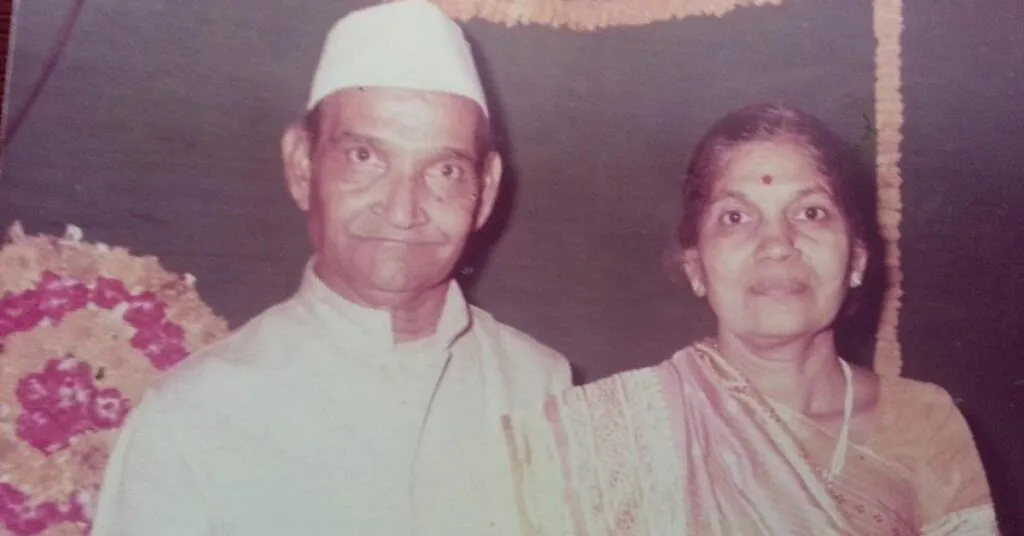
For the uninitiated, khakhra is a dried and roasted version of a papad. A common snack in Gujarati and Jain homes, this cracker is made by mixing flour, salt, and masala, further shaped into a dough by adding oil and water.
When Induben started, she would traditionally prepare only a handful of flavours like methi (fenugreek) and jeera (cumin). Today, however, one has the option to choose from over a 100 flavours like jalapeno cheese, pav bhaji, pani puri, and more.
The origin story
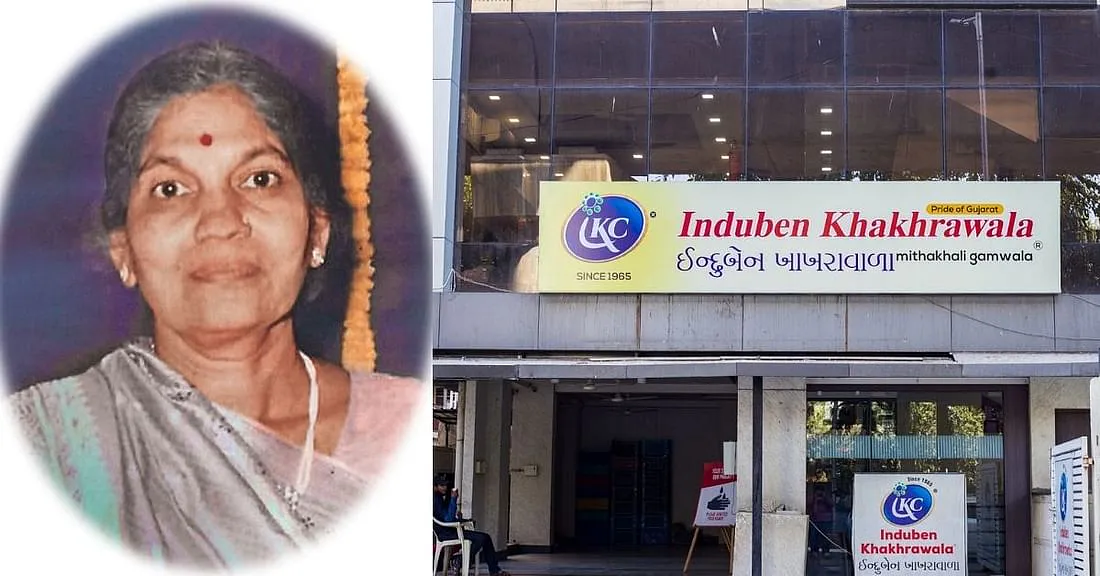
In ‘65, Induben, a mother of three, ventured into entrepreneurship at the age of 43.
Induben’s eldest grandson Nishit Jhaveri, who is also part of the business, says this was more out of necessity than anything else — her husband’s health was failing, and someone had to step up to run the household and care for their children.
Having heard stories about his grandmother from his father Hiren, Nishit says, “Besides making khakhras to sell every day, she would manage the household as well. Her day would often begin before dawn broke and wind up way after the household called it a day.”
He goes on, “Given that she came from a conservative family, making strides outside of her home was not considered to be a good thing. There were several occasions when people would chide her for turning to business. However, for her, working to better her family’s condition was the sole driving force.”
Known for her exceptional culinary skills, Induben worked hard from 1965 until 1970, when she was able to move her place of work to Mithakali in Ahmedabad’s upmarket residential district of Navrangpura.
She continued to be at the helm of affairs until 1981, when she passed away at the age of 53.
When she had first established the business, the market for store-bought khakhras was very limited, says Ankit. This proved to be another hurdle that the entrepreneur was able to tide over with consistent quality and value for money, he adds.
After Induben’s demise, it was her daughter-in-law Smitaben who continued the tradition and took the establishment from strength to strength.
“In 1990, my father and mother [Smitaben] decided to expand the business and invested in a shop close to their home. To be able to do this, my father gave up his job at the textile mill and put in his time and money to set up their first ever store,” recalls Nishit.
Of khakhara, thepla and more
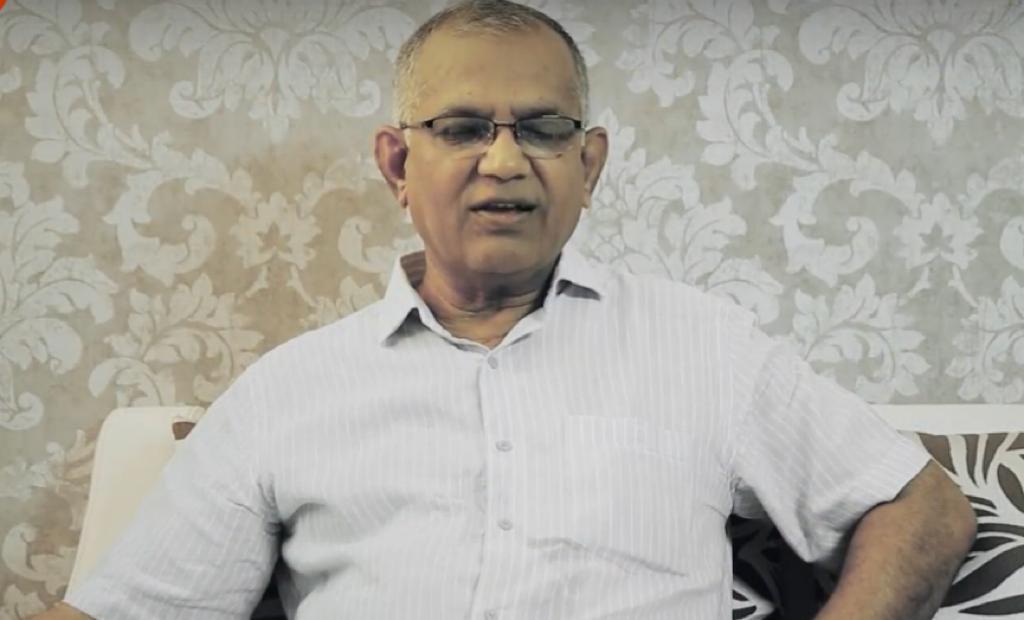
Ankit marvels at his grandmother’s entrepreneurial spirit and recalls how she had taken a loan to be able to buy a scooter for his father [Hiren] so he could carry out deliveries across the city.
He says, “At a time when women were mostly confined to performing household chores, she most certainly paved the way for herself and others who had the desire to make a difference.”
Until 2010 Ankit did not see himself joining the family business. He says, “While in college, I thought I would join the corporate sector. When I joined the business, Induben Khakharawala had only one outlet operational. I am proud of my contribution towards building this brand.”
While Nishit and Ankit started participating in the business from early 2000, it was only after Hiren retired from active business that the duo took charge fully.
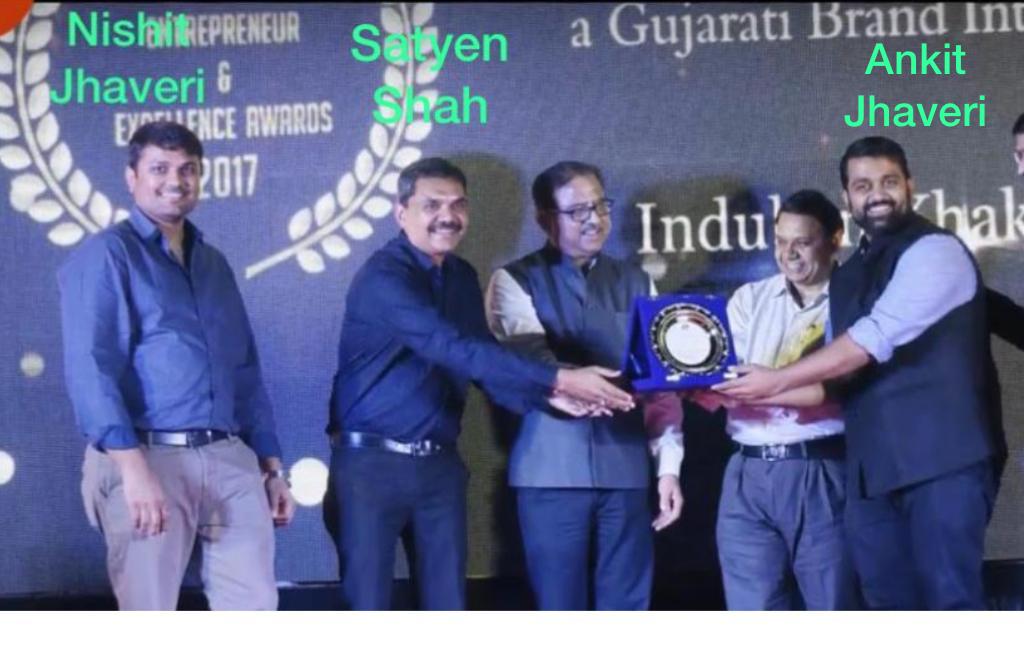
At this point, Satyen Shah, an engineer by qualification, also joined the business in the capacity of a partner. On how the brand expanded he says, “We noticed that often, people travelling to Ahmedabad made it a point to stop at the store to buy Induben’s snacks. Even those travelling to other places from Ahmedabad would carry these along, sometimes as gifts and sometimes just for themselves.”
As part of the expansion plans, a manufacturing unit of 25,000 square feet was acquired in 2010. “We are now looking at establishing franchise models across India and also outside the country,” says Satyen.
Today over 650 products besides khakhra are retailed at the store.
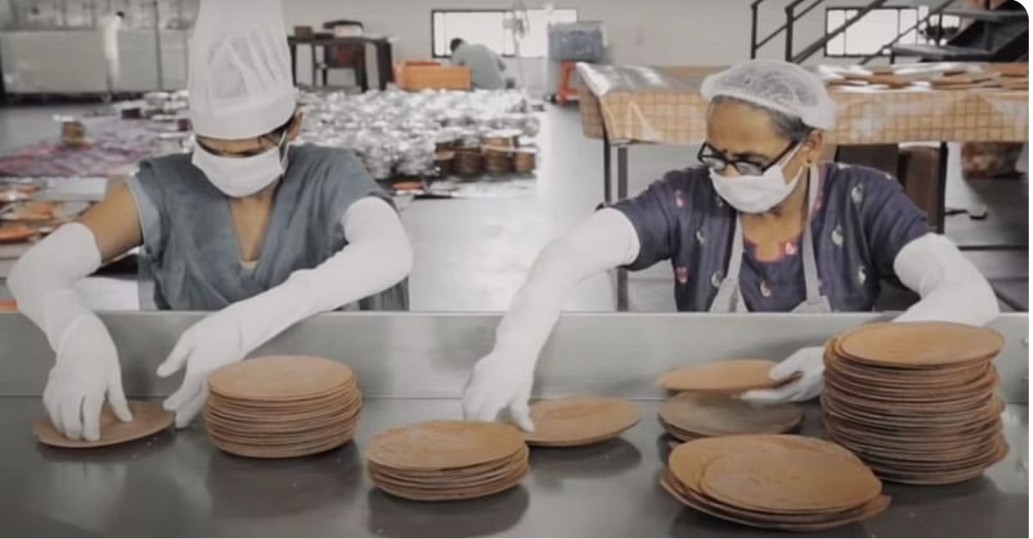
These include various types of namkeens (savouries), sev, gathiya, dhokla, chakri, pickles and chutney, sweets, ready-to-eat food mixes, and bakery products.
Munil Shah (40) a resident of Ahmedabad says, “For as long as I can remember, we have been buying khakhra and so many other snacks from Induben Khakhrawala. It is something that you will always find in our home. Even when we travel abroad, the first thing we pack are the dry snacks from this outlet.”
He continues, “Today, there are several stores all across the city selling the same products. However, the ghee khakhra, which is one of their specialities, remains the best there is.”
While some of Induben Khakhrawala’s processes are automated today, the emphasis on maintaining the same quality that the visionary entrepreneur started with remains. In order to maintain the freshness of the khakhras, they come in vacuum sealed packets, which also helps retain freshness for longer, especially for those who carry these packets overseas.
Induben Khakhrawala has over 18 stores across India and exports their products to over eight countries including, USA, UK, New Zealand, Australia, Canada, Singapore, Thailand and Dubai, says Satyen.
The company employs over 200 people with a specific emphasis on employing women, he adds.
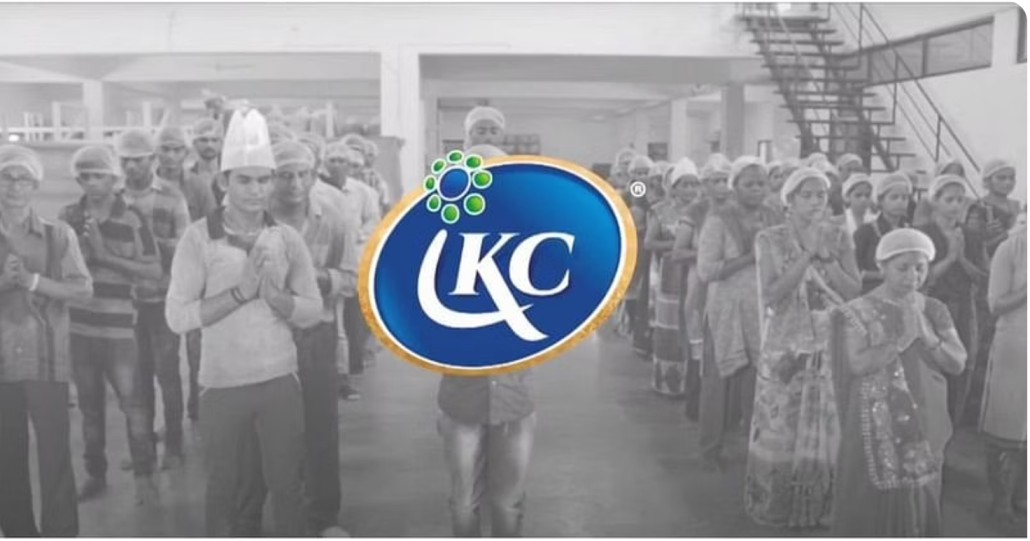
Speaking of how the present owners are expanding upon Induben’s vision of serving authentic homemade snacks, Satyen says, “We often travel overseas and go on guided factory visits — for example, the chocolate factory, and even perfume factories in some countries. We are working on something similar to give people a peek into how our products are made. Why not conduct a guided tour to see what goes on inside a khakhra-making factory?”
If you would like to place an order with Induben Khakhrawala, click here.
All images courtesy: Induben Khakhrawala
(Edited by Divya Sethu)